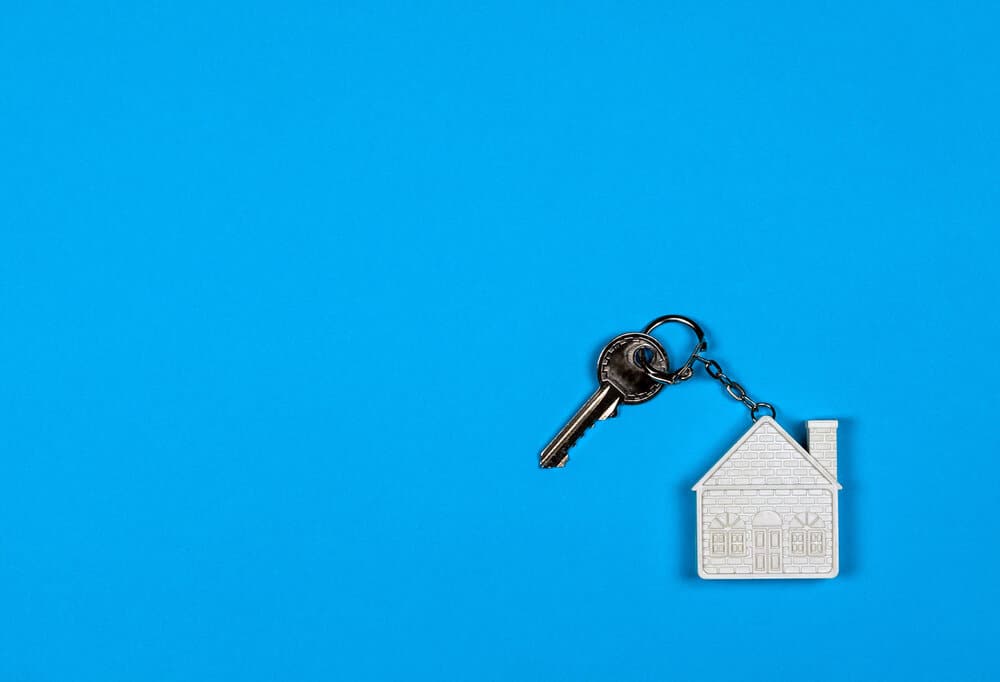Jasmine Birtles
Your money-making expert. Financial journalist, TV and radio personality.


Saving for a mortgage deposit takes longer than ever these days – especially as low-deposit mortgages are increasingly hard to find or be eligible for. The good news is that, if you try these tips, you could save thousands of pounds in a year – and achieve your dream of home ownership faster than you imagined!

A Lifetime ISA (LISA) is the newer version of the old Help to Buy ISA accounts. The HtB accounts aren’t open for new applicants anymore – but LISAs offer the ideal alternative.
We’ve got a detailed article about LISAs here – but this is the info you need to know about a Lifetime ISA:
So, let’s say you have a five-year savings plan for your deposit. Pay in the full amount each year, and you’ll have saved a nice £20,000. You’ll ALSO receive an extra £5,000 (£1,000 a year) from the Government onto that amount. If you’re in a couple, the time to save £25,000 is halved – or you could save £50,000 in five years.
If you want to save quickly and plan to buy a house in the next year or two, a cash LISA is your option. However, if you have a five-year plan (or longer), a stocks and shares LISA can offer you FAR greater returns. As with any investment, you could get out less than you pay in – BUT with the Government top-up each year, your risk is somewhat mitigated. As an example, most cash LISAs at time of writing offer returns no higher than 1% (if you’re REALLY lucky). A stocks LISA could easily net you 8% or more. That’s a significant difference in return!
If you’re receiving Universal Credit right now, it could feel like home ownership is a million years away. On a low income, it’s not easy to save the thousands of pounds required for a mortgage deposit.
It’s not impossible, though – AND you can take advantage of up to £1,200 FREE from the Government. Yes, really!
The Help to Save account is specifically for people on certain benefits, like Universal Credit. Once you’ve earned over a certain amount in one month, you can apply for the Help to Save account.
Here’s how Help to Save works:
It’s important to note a few things here. First, it’s a BONUS not interest – which means it’s not taxable. Second, bear in mind the bonus could tip you over the savings threshold for benefits entitlements if you have other savings or capital.
If you can save £50 a month for the full four years, that’s £2,400 you’ve saved. Top that up with your 50% bonuses and you’ll have £1,200 free on top of that – totalling £3,600.
Feeling REALLY savvy?
Your first Help to Save bonus is paid at the end of the second year you’ve held the account. Let’s say you’ve managed to save £50 a month every month – that means your highest balance is £1,200. Your first 50% bonus will be £600.
What should you do with that cash? Put it in a LISA! Remember – the Government tops up your LISA contributions by 25%. Putting that £600 into a LISA turns it into (£600 + 25%) £750. That’s £750 FREE MONEY you can put towards your mortgage deposit. Put that into a stocks and shares LISA and you could earn even more on your investment, too. So, at the end of four years of Help to Save, you could put a total of £1,500 FREE money towards your mortgage deposit. And that’s not counting compound interest or investment returns, either!

We LOVE a cashback site here at MoneyMagpie. In fact, we’re all signed up to all the major players! TopCashBack and Quidco are our favourites, and you’ll find the majority of retailers listed on at least one of them.
We always encourage you to sign up to more than one cashback site. That’s because you can then take advantage of new customer bonuses as well as making sure you’re getting the best cashback rate before you buy. Some retailers have a set rate across cashback sites, while others run promotions or are exclusive to a single cashback site.
Use these sites every time you buy something online. Seriously – it adds up REALLY quickly over the course of a year! When you’ve got your LISA set up, make it a habit to regularly withdraw your cashback earnings (say, every month). It might seem like small amounts – but it’s much better to shift the cash into your LISA as soon as you can, rather than letting it sit in your cashback site account doing nothing!
Make the most of referral codes, too! All cashback sites offer deals with referral incentives – you earn free money, and your friend gets some for signing up – but keep an eye out for special promotions. For example, TopCashBack runs a £30 refer-a-friend offer a few times a year – getting several people to sign up could net you a few hundred quid!
There are SO MANY ways to live a discount life!
You might be a fan of discount code sites (which can often be used in conjunction with cashback sites, too!). Or, perhaps, you’re an avid supermarket loyalty programme fan. Got to love those Clubcard vouchers!
Sometimes, it’s worth paying a small amount to save a LOT more. If you’re a fan of eating out, schemes like Tastecard offer amazing 2-for-1 or 50% off deals on food and drink. You can often sign up to free trials to get up to three months of deals for free, too! Or, invest £5 in a takeaway thermal mug and save 50p (or more) every time you buy coffee from chains like Starbucks, Costa, and Cafe Nero.
Check out apps from restaurants, takeaway places, and even cinemas, too. You’ll often find that you can save a lot of money over the course of a year just by doing a little legwork and research before you make any purchase.
New technology means there are more ways than ever to take control of your money. Apps that sweep your savings are one of our favourite kinds!
Link an app to your bank account – or in some cases, your bank offers this as part of their app already – and every time you spend something, the amount gets rounded up. You can often choose what it’s rounded up to – such as the nearest pound or five pounds. This means you’ll save a little bit every time you spend – without noticing. Everyday purchases – whether that’s your grocery shop, bill payments, or a sneaky coffee on your way to work – quickly add up as the extra pennies are swept into a side pot.
We’ve tried and tested lots of savings apps – check out our guide to the best savings apps to decide which one suits your savings goals!

If you have any kind of debt right now – except student loan debt – consider paying it off before you start saving for your mortgage deposit. Especially at the moment, as interest rates on savings are so low, you’re essentially losing money if you’re trying to save while not paying off credit card, loan, or car finance debt.
Debt will also significantly impact your credit score – and the poorer your score, the less likely it is you’ll even get a mortgage. If you have several credit cards, loans, car finance, or bill arrears, focus on paying those off first. Don’t close your credit card when it’s paid off, though! Credit scores take into account a LOT of different factors – including the ratio of credit that you’re using. So, if you close your credit card account when it’s zeroed out, you’re actually damaging your credit score further. To credit reference agencies – and mortgage lenders – it looks like you’re using a higher proportion of credit than if you kept the card open.
For example, let’s say you have two credit cards each with £1,000 on them, with an available total balance of £1,500 on each. So, on both cards, you’re using 66% of your credit availability. But, if you pay one card off and close it, you’re still using 66% of your credit availability on your other card. If, however, you keep both cards open, you’re now only using 33% – a total of £1,000 on an available credit amount of £3,000 – which looks much better to lenders.
Not sure where your credit score stands? Check out our tips on improving your credit record to improve your chances of getting a mortgage!
There are two routes to saving money faster: cut your living expenses or find additional income.
Cutting living expenses is advisable wherever possible anyway. You’ll get used to living on less, rather than always spending your maximum each month. However, realistically, saving a deposit for a mortgage takes years – and living very frugally for five years or more isn’t a way to live. So, it’s a balancing act: cut back where you can AND increase your income.
Of course, you could always speak to your employer about getting a pay rise as a first step! However, with international tariffs and rising cost of living having a huge impact on every industry, it might be unlikely. The alternative? Generate your own side income.
There are lots of ways to set up a passive income to earn extra cash. Use these earnings to boost your mortgage deposit – sweep the cash you earn straight into your savings account rather than spending it!
You can earn an entirely passive income – such as £130 a year just for surfing the web like normal – or do a little legwork to generate more cash. Writing your own online course, for example, or running a side job as a tutor or dog walker can all be ways to add to your mortgage deposit savings account.
Check out our Make Money section to discover all the ways you can earn extra money in your spare time!

Avery useful article.